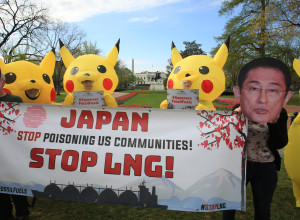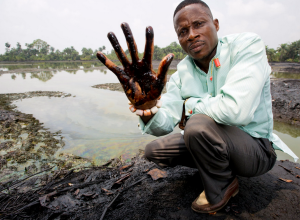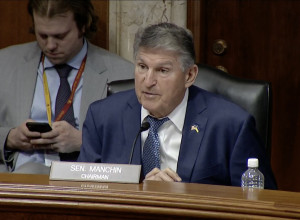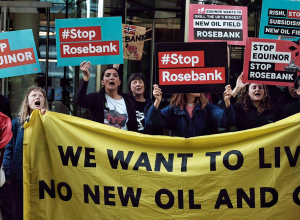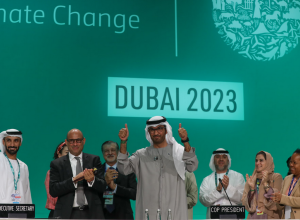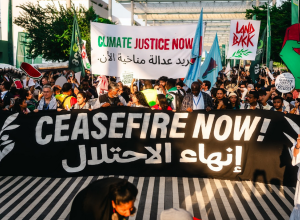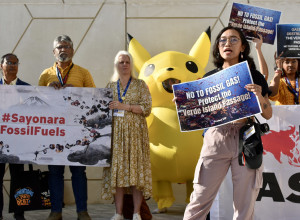BLOG
ALL POSTS
Japan is continuing to drive the expansion of fossil fuels across Asia and is derailing the transition to renewable energy. This harms communities and ecosystems, undermines energy security, and worsens the climate crisis. The facts speak for themselves.
A letter delivered to U.S. President Biden from 560+ organizations around the world applauded Biden's decision to halt pending LNG export approvals and called on him to expand the pause to halt all permitting of new LNG infrastructure and export projects.
Last month, it was widely reported that another chapter in Shell’s dirty and disastrous eighty-seven-year operations in the Niger Delta was coming to an end, with the company selling its onshore business.
While Manchin and his industry allies spread tired old myths about America saving the world from Putin and Chinese coal plants, the reality is the energy transition is already moving away from gas faster than most people think. That action needs to focus on a phase-out of all fossil fuel exports and protections and reparations for the frontline communities.
The oil and gas industry claims programs to “certify” gas will reduce emissions and allow them to market their gas as clean and safe for the climate. But a look at the companies that have committed to certification, and those who haven’t, highlights why voluntary programs fail to motivate the worst methane polluters – and why gas certification isn’t a viable climate solution.
A majority of UK residents believe it's unacceptable for politicians to receive donations from fossil fuel companies, according to a recent poll.
Just weeks after the COP28 climate talks finished, it is business as usual for the host country, the United Arab Emirates, in expanding its oil and gas production.
Israel's brutal, bloody war on Gaza shows no sign of relenting, with nearly all the Gazan population displaced and Israel warning the war could go on for another year.
"We need a shift away from the business-as-usual threatening lives and wrecking the climate, but Azerbaijan appointing another lifelong oil man to lead the next UN climate talks pushes us closer to the abyss," said Rees.
Activists warn post-COP28 Japan-ASEAN summit will be full of greenwashing and dangerous distractions
COP28’s historic agreement sent a long overdue signal on the end of the fossil fuel era, but glaring loopholes in the agreement could be exploited as Japan hosts the ASEAN summit and Asia Zero Emissions Community Summit.

